I have a few thoughts to share on the recent debate over the quality and cost of food and other goods in the Czech Republic vs. abroad, which was jumpstarted by an excellent investigative piece by the excellent journalist Petra Pospěchová. She took a comparative shopping trip to both a German and a Czech location of an international supermarket chain, bought the cheapest products in several categories (ketchup, jam, camembert, etc.) in both stores, and came to the conclusion that yes, overall, we often do pay more for lesser quality here in the Czech Republic.
Among the more amusing contributions to the discussion of why tomatoes are a.) more expensive and b.) crappier here than in say, Germany or Austria, was a link shared by Czech food blogger pán Cuketka on his facebook page this week: A recipe right out of the nation’s little shop of horrors. It basically involves throwing some chicken breasts into a casserole, topping it off with a nice and generous dollop of lick-your-fingers delicious tatarka (maybe we should have a go at getting the EU specialty label for this little daredevil of a condiment, after it did not work out in the case of pomazánkové máslo…) and some sliced eidam. You guessed it: This is still disgusting after 30 minutes in the oven. That it’s called mother-in-law’s excellent chicken with tatarka doesn’t help matters, either.
After having a good laugh at the thought of whose cruel mother-in-law authored the recipe, I thought about the role of consumers in determining food quality. Yes, as long as there are people who think that throwing some canned peaches on a pale and watery piece of chicken is somehow culinarily daring, we’re in trouble. Yes, as long as we buy the overly expensive crap that Albert, Billa and co. are selling us, we should not be surprised if prices and quality don’t improve. Yes, Czechs are still new to the whole food culture thing (but quickly catching up, and it’s not like Germany is full of gourmets, either). But I don’t think that it takes a nation of feinschmeckers for supermarkets to learn their lesson. I also don’t believe a grassroots consumer campaign would work here, nor can I think of many occasions on which something similar has been successful in other countries and eras.
The sad truth is that most people are lazy when it comes to most things, and even with the explosion of food-centered TV shows, blogs, etc. in the last decade, the number of consumers who care enough about food to only shop where quality is good, especially if that means (as it does in Prague) doing your grocery shopping at several different shops (I am one of the crazies who does that and it’s no fun), is still relatively small. Therefore, I think it is the responsibility of every government to help improve the quality of food available to its citizens, but I cannot really think of any pertinent arguments for this demand, so…
Let’s talk about the one aspect that I feel is missing in this debate: the horrendous display windows of Czech supermarkets, Vietnamese-run convenience stores and other smaller businesses. I mean, really? This is supposed to get me INSIDE your shop? The fact that businesses continue to exist, in some cases for years and decades, with these kinds of window displays says a lot about how much exactly some consumers here are willing to put up with. While the big chains at least try to hide the fact that they don’t really give a shit about whether you enjoy shopping at their store or not, this cannot be said about the following offenders:
EXHIBIT A – a merry potpourri of slippers, chocolates, one-liter plastic bottles of beer and tissues. We’ve probably got you covered.
EXHIBIT B – Happy days are long gone, baby.
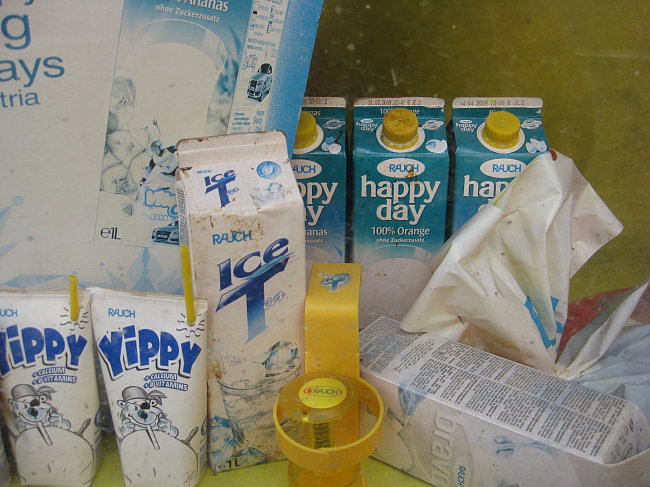
EXHIBIT C – I cannot believe this expired only two years ago.
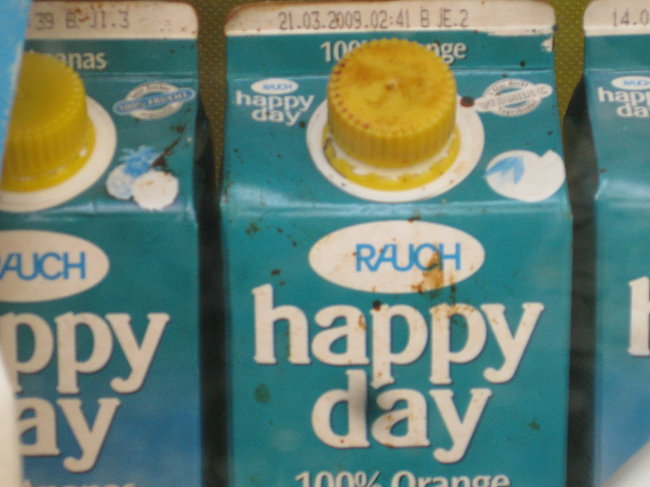
EXHIBIT D –Yippy? I think there is a cigarette butt in the glass at the very back.
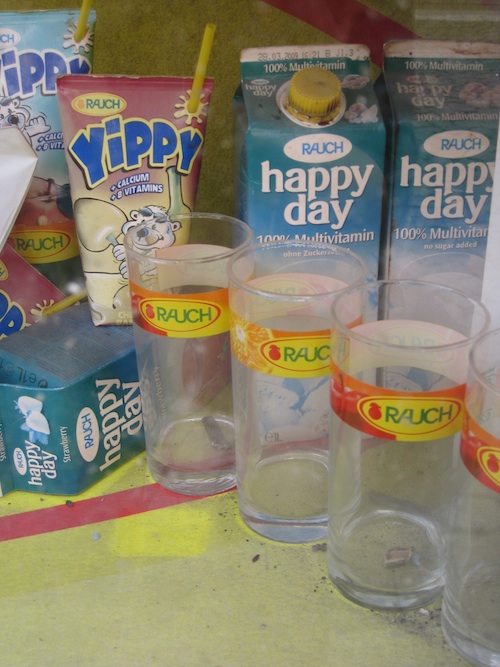
EXHIBIT E – The famous Czech beer.

EXHIBIT F – I get it. You have several kinds of toilet paper. Wow.
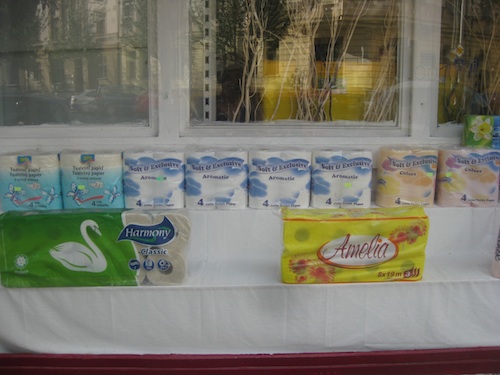
EXHIBIT G – Daily staples with a side of dust.
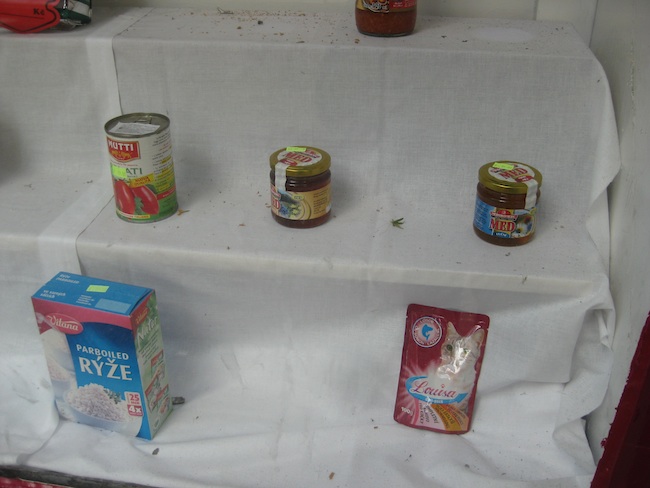
As much as I like to poke fun at ridiculous sights like those above, they also make me kind of sad. Whenever I have entered supermarkets (except for discount ones) in Germany, France, the UK, Ireland and the US, for the most part, the experience has been pleasant, sometimes it even was a sensual (hear, hear) one. I found produce that was arranged nicely, even lovingly, the shelves were well-stocked with a wide variety of goods and I never felt conned or downright made an ass of as I was doing my shopping. I think that Czech consumers, myself included, deserve to walk into a supermarket and not only find decent quality food at fair prices, but also offer a pleasant backdrop in which to do your shopping. Because something tells me that if you arrange your goods with this very apparent lack of love, chances are there probably isn’t a whole lot to love in the first place.
